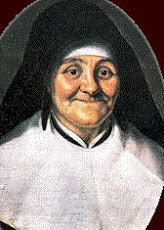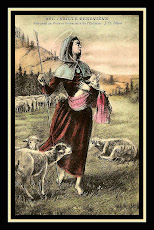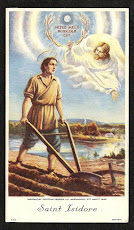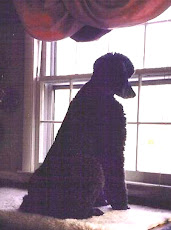
Dogma of the Assumption of the Blessed Virgin Mary
declared by Pope Pius XII on Nov. 1, 1950.
"the Immaculate Mother of God, Mary ever Virgin, when the course of her earthly life was finished, was taken up body and soul into the glory of heaven."
In a very early message given in Medjugorje,
(private revelation not officially approved
or disapproved by the Catholic
Church)
Our Lady states in response to a question asked
if she went to Heaven before or after death:
Our Lady states in response to a question asked
if she went to Heaven before or after death:
"I am the Mother of God and the Queen of Peace.
I went to Heaven before death."
(October 12, 1981)
(not a holy card but a wonderful bookplate picture)
(double click picture to enlarge)








10 comments:
I hope you don't mind, but I would like to link to you today!
Dear blogger,
I would enjoy this site better if there were no references to alleged apparitions on which the Church has not yet ruled.
Today, you've written, "... in Medjugorje, our Lady states ..." etc.. But it is wrong for each of us, as mere Catholics who are not popes, to say such a thing, because we do not have permission to proclaim to each other what "our Lady states."
What we do have a duty to do is to keep an open mind about Medjugorje and other places about which the Church has not yet firmly ruled.
We have to be ready to accept things like Medjugorje as either worthy of optional belief >>that is, possibly to probably genuine>> or unworthy of belief >>that is, not genuine and apparently the result of deception>>.
If we make the mistake of going out on a limb, prematurely accepting or rejecting an alleged apparition, we can be terribly embarrassed, devastated, angered, etc., later, after the Church decides contrary to our judgment. This kind of thing can lead to a lack of trust in the Magisterium or, even worse, to a defection from the faith, as has happened in the Bayside fiasco.
I have been keeping an open mind about Medjugorje for over 25 years, but the blog's alleged quote from Our Lady makes it harder for me to continue to keep an open mind, which is why I am hoping that it is a misquote.
The reason I say this is that the words attributed to Mary seem to contradict some language in "Munificentissimus Deus," the papal Bull in which Pope Pius XII declared the dogma of the Assumption.
Although the pope did not include the word, "death," in the dogma's formal definition of the Assumption, other parts of the Bull's text make it crystal clear that Pius XII and other popes and saints were convinced that Our Lady died.
I am going to copy here some parts of the papal Bull now, and I am going to capitalize some of the words, in order to call special attention to them because they refer to Mary's death.
This should not shock or disappoint us. Why should Our Lady NOT die? After all, her Son, who is GOD HIMSELF, was able to die. It makes perfect sense that His non-divine mother, who sought to imitate Him in life, should also see her life end in death and should them undergo resurrection too! I believe that popes and saints have considered an assumption into heaven after death as an even greater thing than an assumption without death, because it more clearly illustrates a victory over death.
Please note: I am not saying that it is IMPOSSIBLE for Mary to have been assumed without dying, because that seems to have happened to Elijah and Enoch. It's just that we have a duty to rely on what Pope Pius XII wrote, rather than on an alleged quotation from an as yet unapproved apparition.
By the way, even if Medjugorje gains approval some day, the Church will not force us to believe in it and will not guarantee the accuracy and reliability of any of the reported statements.
Now here are the quotations from Pope Pius XII, written in 1950:
"17. In the liturgical books which deal with the feast either of the Dormition or of the Assumption of the Blessed Virgin there are expressions that agree in testifying that, when the Virgin Mother of God passed from this earthly exile to heaven, what happened to her sacred body was, by the decree of divine Providence, in keeping with the dignity of the Mother of the Word Incarnate, and with the other privileges she had been accorded. Thus, to cite an illustrious example, this is set forth in that sacramentary which (Pope) Adrian I, our predecessor of immortal memory, sent to the Emperor Charlemagne. These words are found in this volume: 'Venerable to us, O Lord, is the festivity of this day on which the holy Mother of God SUFFERED TEMPORAL DEATH, but still could not be kept down by the bonds of death, who has begotten your Son our Lord incarnate from herself.' ...
"20. ... The holy Fathers and the great Doctors, in the homilies and sermons they gave the people on this feast day ... spoke of this doctrine as something already known and accepted by Christ's faithful. They presented it more clearly. They offered more profound explanations of its meaning and nature, bringing out into sharper light the fact that this feast shows, not only that the DEAD BODY of the Blessed Virgin Mary remained incorrupt, but that she gained a triumph out of DEATH, her heavenly glorification after the example of her only begotten Son, Jesus Christ-truths that the liturgical books had frequently touched upon concisely and briefly.
"21. Thus St. John Damascene, an outstanding herald of this traditional truth, spoke out with powerful eloquence when he compared the bodily Assumption of the loving Mother of God with her other prerogatives and privileges. 'It was fitting that she, who had kept her virginity intact in childbirth, should keep her own body free from all corruption even after DEATH.' ...
"35. In like manner St. Francis of Sales, after asserting that it is wrong to doubt that Jesus Christ has himself observed, in the most perfect way, the divine commandment by which children are ordered to honor their parents, asks this question: 'What son would not bring his mother back to life and would not bring her into paradise after her DEATH if he could?' ..."
Thank you very much.
A Careful Catholic
What a awesome picture! Thank you for sharing this with us, dear Micki!
Oh, Micki...you make my day extra special 'everyday' with your beautiful gifts you share with one and all. "Thank You" so very much for your dedicated effort to bring peace and joy to the world. Can't you just feel the warm smiles from Heaven today when your gift is viewed! ~Peace & Happiness~Freda~
What a gorgeous image depicting the Assumption.
Thank you for finding these wonderful images and sharing them with everyone. It is always a joy to come here and see what you have found for us today.
Thank you, thank you, and God bless.
Kay
Regarding the commenter who started out: "Dear blogger, I would enjoy this site better if ..."
I find the comment to be abrasive. Also, repelling vs. compelling for some reason. Unfair to say though, given the cold vehicle of written vs. spoken words. In any event - in response, I'll add the following.
Maybe the following is helpful. It's copied from the online glossary at St. Mary's Press.
http://college.smp.org/glossary/index.cfm?Letter=D
"Assumption of Mary. This term (from the Latin assumere, meaning “to take up”) refers to the dogma that was officially proclaimed by Pope Pius XII on November 1, 1950. The dogmatic definition of the Assumption of Mary, which states that after the completion of her earthly life, the Blessed Virgin Mary was taken up, body and soul, into heavenly glory, does not decide whether Mary died or whether she went to sleep in the Lord and was then assumed into heavenly glory; this second view is called the Dormition of Mary. (See CCC 966)"
"Dormition of Mary. The word “dormition” comes from Latin and means “falling asleep.” Although the Assumption of Mary was proclaimed a dogma by Pope Pius XII on November 1, 1950, the dogmatic definition did not determine whether Mary died before her Assumption or whether she went to sleep in the Lord and was then assumed into heavenly glory; this second view, called the Dormition of Mary, is favored in the Eastern Church. See ASSUMPTION OF MARY. (See CCC 966)"
I am re-reminded that Holy Scripture and our Catechism of the Catholic Church is the place to start and to end the discussion, to find our answers, to curb excessive and fanatical tendencies if applicable, and to influence due caution and care. How we need them today!
The following site is an online Catechism. I haven't used the site myself very much and don't know how user-friendly it is, or if the entire contents are included and searchable. But if an official on-line version can't be found, why we should all have and bring out our personal copies. Holy Scripture is online, too.
http://www.usccb.org/catechism/text/
I just LOVE your site Micki, pure and simple.
Wow, "careful blogger"! Most of us that visit this site and comment quite often are loving Jesus and Mary and trying to lead holy, Catholic lives. I was a little startled by the length of your comment and the almost terse attitude of your first paragraph. Micki would never, never intend any kind of harm or misleading any of us. Pope John Paul II was a devotee of Medjugorje, from what I have heard. That is good enough for me---even if, in the end, the apparition isn't given the approval of the Church, our Faith is strong and we love our Lady under her many titles. I don't think quoting from something our Lady might have said at Madjugorje
is a problem. How many, many people and religious have gone to visit there! If it ends up not being approved, no one is going to lose their faith or freak out about it--if someone did, their faith might be on pretty thin ice to begin with.
Diane S.
Cassie - Thank you for sharing my link with others.
Anonymous - I'm glad you felt comfortable to give your view.
Easter - Always good to see you hear...a faithful and faithfilled commenter.
Freda - You give me great affirmation. It is His "joy" you receive.
Kay - What an inspiring friend you are! It bring such pleasure to me and your holy cards are a blessing to all of us.
Anonymous - I wish I knew your name to thank you properly for what you so graciously added to this post. Your comments said what I couldn't.
Diane - You are so thoughtful to point out all those who have been to Medjugorje. I join you and thank you for your meaningful post.
Wow, anonymous, what about that whole not judging others lest ye be judged thing? Please be respectful of Micki. She shares her amazing holy cards with all of us, every day, for our enlightenment.
In re: Medjugorje, a lot of people have been helped by pilgrimage and thereto; while I haven't been myself, I know several who have, and have a medal that someone gave an acquaintance, who passed it on to me, a Catholic with roots in Central Europe. It would never occur to me to say "no thanks, this is not now and may never be official." We don't know and it seems inappropriate for us to decide what the next person believes.
Micki, loved the card! It's so beautiful.
Nan - You just gave me a big hug...thank you. I do appreciate hearing about your feelings about Medjugorje. I think it is safe to say that Mary is always most concerned with leading people to Jesus. I'm glad you liked the art work. Thank you again.
Post a Comment